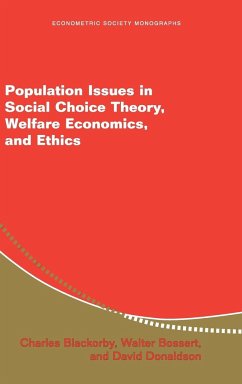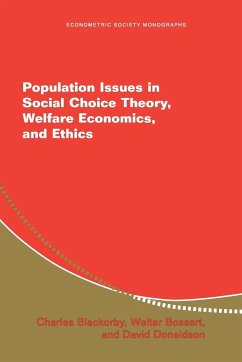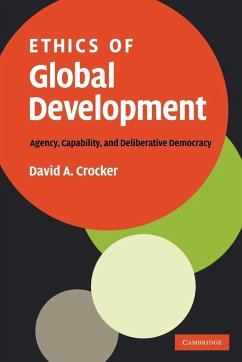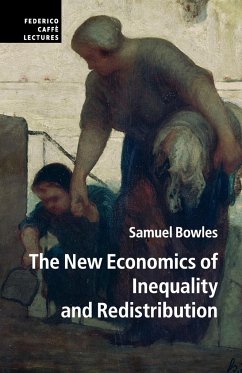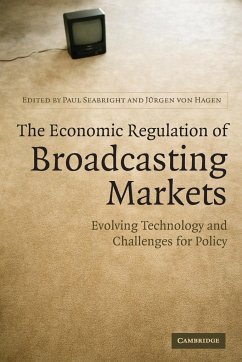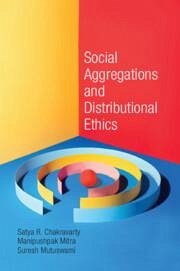
Social Aggregations and Distributional Ethics
Versandkostenfrei!
Versandfertig in 1-2 Wochen
93,99 €
inkl. MwSt.

PAYBACK Punkte
47 °P sammeln!
This book analyzes the following four distinct, although not dissimilar, areas of social choice theory and welfare economics: nonstrategic choice, Harsanyi's aggregation theorems, distributional ethics and strategic choice. While for aggregation of individual ranking of social states, whether the persons behave strategically or non-strategically, the decision making takes place under complete certainty; in the Harsanyi framework uncertainty has a significant role in the decision making process. Another ingenious characteristic of the book is the discussion of ethical approaches to evaluation o...
This book analyzes the following four distinct, although not dissimilar, areas of social choice theory and welfare economics: nonstrategic choice, Harsanyi's aggregation theorems, distributional ethics and strategic choice. While for aggregation of individual ranking of social states, whether the persons behave strategically or non-strategically, the decision making takes place under complete certainty; in the Harsanyi framework uncertainty has a significant role in the decision making process. Another ingenious characteristic of the book is the discussion of ethical approaches to evaluation of inequality arising from unequal distributions of achievements in the different dimensions of human well-being. Given its wide coverage, combined with newly added materials, end-chapter problems and bibliographical notes, the book will be helpful material for students and researchers interested in this frontline area research. Its lucid exposition, along with non-technical and graphical illustration of the concepts, use of numerical examples, makes the book a useful text.





